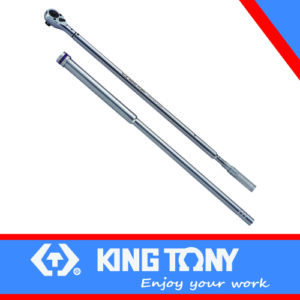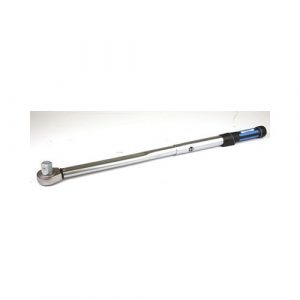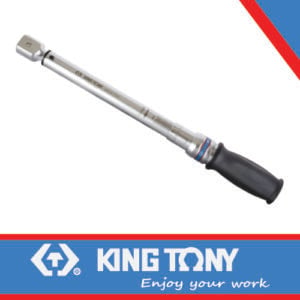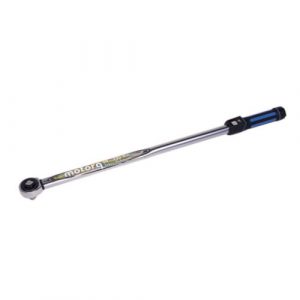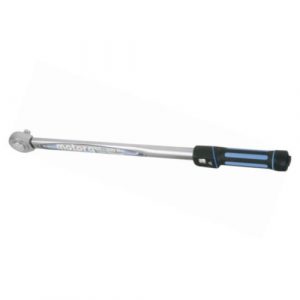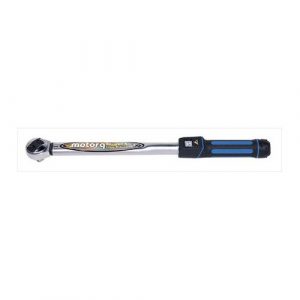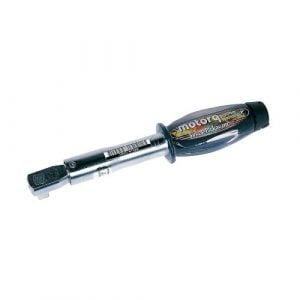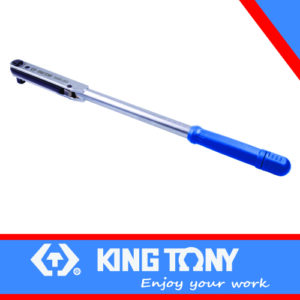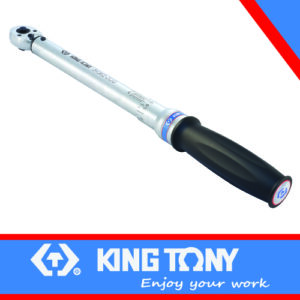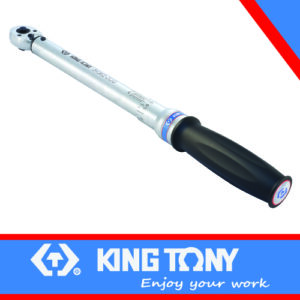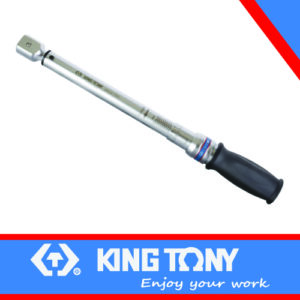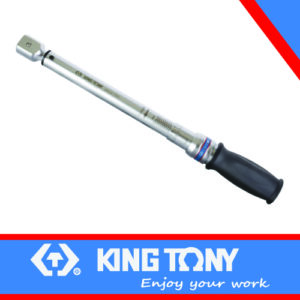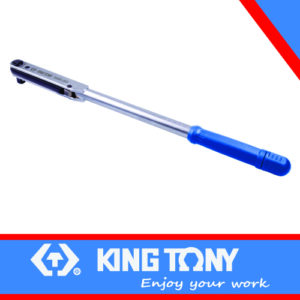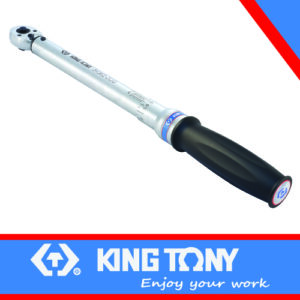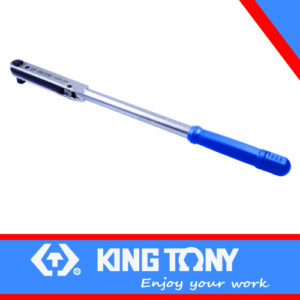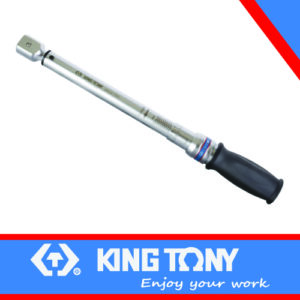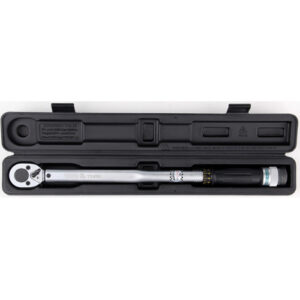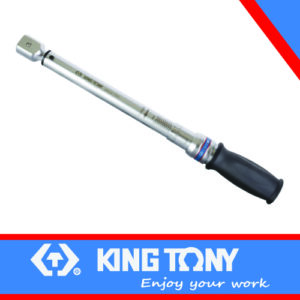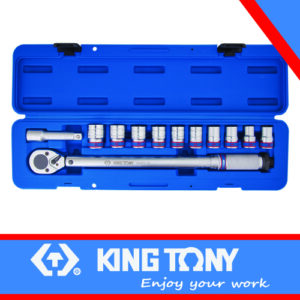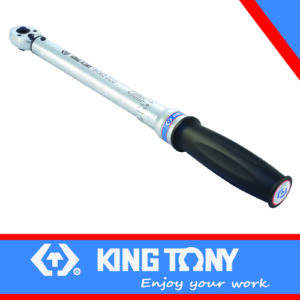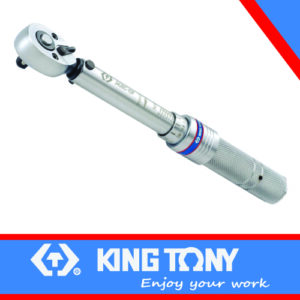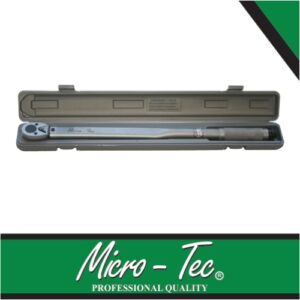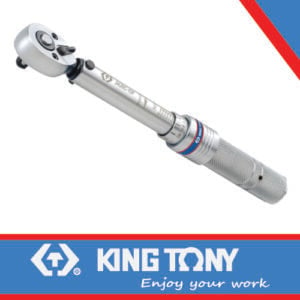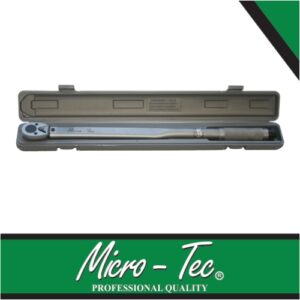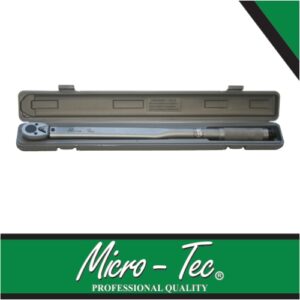Torque wrenches are precision tools used to apply a specific amount of torque to fasteners, such as nuts and bolts. Ensuring the correct torque is crucial in many applications to prevent over-tightening or under-tightening, which can lead to equipment failure or mechanical issues.
Features:
- Design:
- Adjustable Settings: Allows users to set the desired torque level, which is then indicated when achieved.
- Scale: Can have a mechanical scale, digital readout, or click mechanism to signal when the set torque is reached.
- Types:
- Beam Torque Wrench: Uses a beam and pointer to measure torque. The beam bends as torque is applied, and the pointer indicates the amount of torque on a scale.
- Click Torque Wrench: Emits a “click” sound and/or tactile feedback when the set torque is reached. It is a popular choice for its ease of use.
- Dial Torque Wrench: Features a dial gauge that displays the torque applied. It provides real-time readings of torque.
- Digital Torque Wrench: Uses electronic sensors to measure and display torque on a digital screen. Some models have advanced features like programmable settings and memory storage.
- Calibration:
- Accuracy: Most torque wrenches need periodic calibration to ensure accuracy. Calibration ensures the wrench provides precise torque readings.
- Material:
- High-Strength Steel: Typically made from durable materials like chrome vanadium steel to withstand high torque levels.
- Handle: Often includes ergonomic or non-slip grips for comfortable and secure handling.
Uses:
- Automotive Repair: Ensures proper tightening of engine components, wheels, and other parts to manufacturer specifications.
- Mechanical Work: Essential for assembling and maintaining machinery where precise torque settings are critical.
- Construction: Used for tasks that require accurate torque application, such as securing structural components.
- DIY Projects: Useful for various home improvement and repair tasks requiring accurate tightening.
Advantages:
- Precision: Provides accurate control over the amount of torque applied, reducing the risk of damage to fasteners and components.
- Consistency: Ensures that all fasteners are tightened to the same specification, improving the reliability and safety of assemblies.
- Versatility: Available in various types to suit different needs, including mechanical, automotive, and construction applications.
Other Known Names:
- Torque Tool: A general term that can be used interchangeably.
- Torque Meter: Another term used, particularly in engineering contexts.
Torque wrenches are essential tools for accurately applying specified torque to fasteners, ensuring reliability and preventing damage. Ideal for automotive, mechanical, construction, and DIY tasks.
Showing 1–28 of 32 results
- 1
- 2
